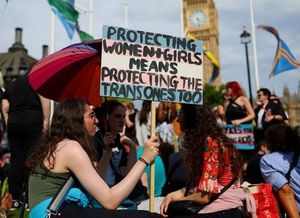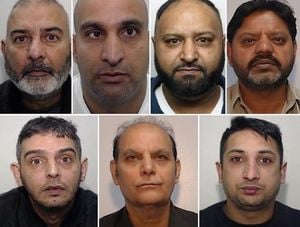In a political landscape often marked by sharp divisions, the United Kingdom finds itself at a crossroads over two contentious issues: the definition of Islamophobia and the introduction of mandatory digital ID cards. Both topics have ignited fierce debate across party lines, revealing shifting priorities and deep-seated anxieties about civil liberties, social cohesion, and the future direction of British society.
Earlier this year, the Labour government, under the leadership of Prime Minister Keir Starmer, established a working group to craft a formal definition of Islamophobia. The aim was to address discrimination and prejudice faced by Muslims in Britain, a move intended to rebuild trust with British Muslim communities—particularly after tensions escalated in the wake of the Israel-Palestine conflict. However, the tone from Labour’s top ranks has shifted markedly in recent weeks.
Steve Reed, who took over as communities secretary last month following Angela Rayner’s resignation, has signaled a retreat from Labour’s earlier stance. According to reporting from The Telegraph, Reed emphasized that the right to criticize and even mock religion is fundamental, and that safeguarding free speech would be central to any new proposals. He cautioned against a return to blasphemy laws, which were abolished in 2008, warning that "the protection of free speech will be a key consideration in the proposal."
Home Secretary Shabana Mahmood, the highest-ranking Muslim in the government, echoed Reed’s concerns. She argued that an official definition of Islamophobia could inadvertently grant Muslims preferential treatment and potentially stifle free expression. Mahmood warned, "Establishing an official definition of Islamophobia could give Muslims preferential treatment and create further conditions that increase hatred by inhibiting freedom of speech in modern Britain." Her intervention is particularly significant given her own faith and her new prominence in the Home Office—a sign of the rising influence of Blue Labour and more socially conservative thinking within the party.
This apparent about-face has not gone unnoticed. Observers point to several possible motivations behind Labour’s shift. The resignation of Angela Rayner, a key figure on the party’s left, has tilted the balance of power. At the same time, Labour’s leadership may be recalibrating its electoral strategy. With anti-Labour sentiment running deep among British Muslims—fueled by both international issues and a sense of economic and cultural disconnect—the party may be pivoting toward "socially protectionist" white British communities, who have become increasingly vocal about concerns over Islamism and the need for robust inquiries into issues like grooming gangs.
There’s also an international dimension. In February, Prime Minister Starmer found himself in a transatlantic spat with US Vice President JD Vance at the White House. Vance accused the UK of infringing on free speech rights, with Starmer defending Britain’s record. It would be a major contradiction, critics say, for Labour to now endorse a definition of Islamophobia that could be seen as curbing criticism of religious orthodoxy.
But even as the government steps back from a formal definition of Islamophobia, it is forging ahead with another controversial initiative: the introduction of mandatory digital ID cards. Announced by Starmer on September 25, 2025, the plan is billed as a way to tackle illegal immigration. "You will not be able to work in the United Kingdom if you do not have digital ID. It's as simple as that," Starmer declared. The cards, which can be stored on a smartphone, will include the holder’s name, residency status, date of birth, and nationality, and will initially be used for employment verification. The government aims for a full rollout by August 2029.
Yet, far from uniting the country, the plan has sparked rare consensus—against it. Both left and right-wing parties have lined up to oppose the measure, albeit for different reasons. Former Labour leader Jeremy Corbyn, who in 2024 left the party to stand as an Independent and has since launched his own movement called "Your Party", was blunt in his assessment. "This is an affront to our civil liberties, and will make the lives of minorities even more difficult and dangerous," Corbyn said, as reported by Fox News. "It is excessive state interference — and must be resisted."
Corbyn’s concerns are echoed by Nigel Farage, leader of Reform UK and a longstanding critic of government overreach. In a post on X, Farage stated, "It will make no difference to illegal immigration, but it will be used to control and penalize the rest of us. The state should never have this much power." The opposition from both ends of the political spectrum highlights the depth of unease about the potential for digital IDs to erode privacy and civil liberties.
Public opinion on the matter has shifted dramatically over the past few months. According to The Independent, more than half of Britons backed digital IDs as recently as June 2025, with fewer than 20% opposed. By early October, however, support had plummeted, with nearly half of all Brits now expressing opposition to the plan. The backlash has been tangible: more than 2.4 million citizens have signed a petition on Parliament’s website against the digital ID cards, as reported by the BBC. Under parliamentary rules, any petition with over 100,000 signatures must be considered for debate—a threshold this petition has surpassed many times over.
Despite the outcry, the government has stood firm, arguing that digital IDs are a necessary tool to combat illegal work and secure borders. Supporters claim the cards will streamline verification processes and help authorities crack down on undocumented labor. Critics, however, see a slippery slope toward surveillance and discrimination, particularly against minorities and those already marginalized.
The debate over both Islamophobia and digital IDs is unfolding against a backdrop of broader societal anxieties. The fraying of Labour’s relationship with Muslim communities, the rise of anti-establishment sentiment, and the specter of growing nationalism all feed into a volatile mix. For some, the government’s moves represent a necessary recalibration—an attempt to balance the rights of individuals with the needs of the state. For others, they are a worrying sign of creeping authoritarianism and the erosion of hard-won freedoms.
It’s rare for the UK’s left and right to find common cause, but the digital ID controversy has done just that. Meanwhile, Labour’s retreat on defining Islamophobia suggests a party still searching for its footing in a rapidly changing political landscape. As both debates continue to unfold, the stakes—for civil liberties, social harmony, and the future of British democracy—could hardly be higher.
In the weeks and months ahead, all eyes will be on Westminster as politicians grapple with these defining questions, and as citizens make their voices heard in ever greater numbers.






